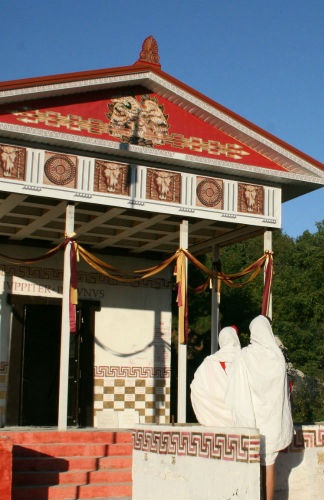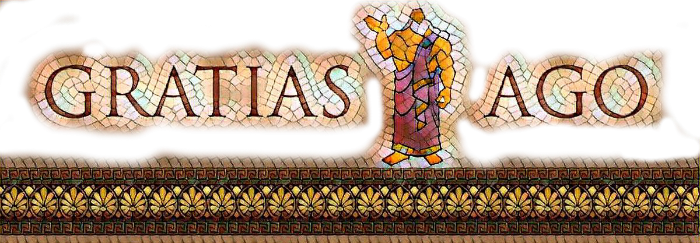
Today it is Dies Fastus – a regular working day on which modern Romans may do their daily businesses – both civic and religious. It is OK to sign contracts, travel, start new projects, worship the Immortals, etc.
It is the third day before Nonae Decembres.
It is the C nundial day, Nundinae – the market day of this year.
FAVNO – a country festival for Faunus held by the pagi. Faunus is the rustic God of the forest, plains and fields; when He made cattle fertile he was called Inuus. He came to be equated in literature with the Greek god Pan, after which Romans depicted Him as a horned God. Faunus is one of the oldest Roman Deities, known as the di indigetes. According to the epic poet Virgil, He was a legendary king of the Latins. His shade was consulted as a Goddess of prophecy under the name of Fatuus, with oracles in the sacred grove of Tibur, around the well Albunea, and on the Aventine Hill in ancient Rome itself. Two festivals, called Faunalia, are celebrated in His honour—one on 13 February, in the temple of Faunus on the island in the Tiber, the other on 5 December, when the peasants bring Him rustic offerings and amuse themselves with dancing. The Latin word pagus (plural pagi) was an administrative term designating a rural subdivision of a tribal territory, which included individual farms, villages (vici), and strongholds (oppida) serving as refuges, as well as an early medieval geographical term. From the reign of Diocletian (284–305 AD) onwards, the pagus referred to the smallest administrative unit of a province.







